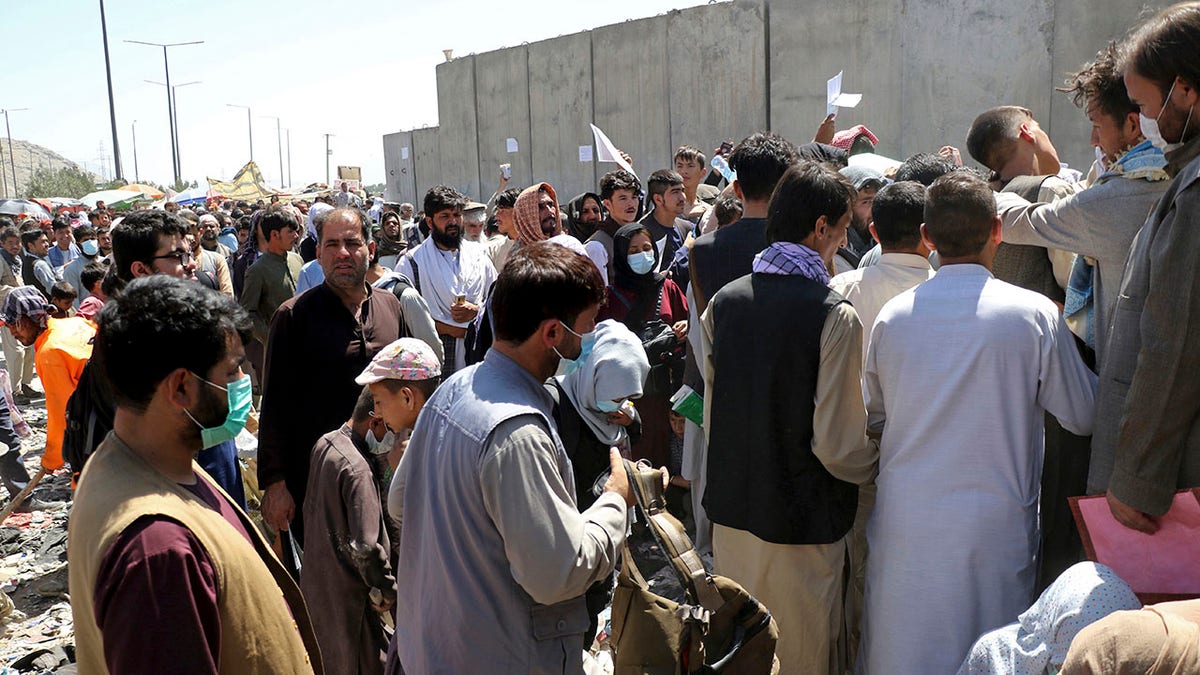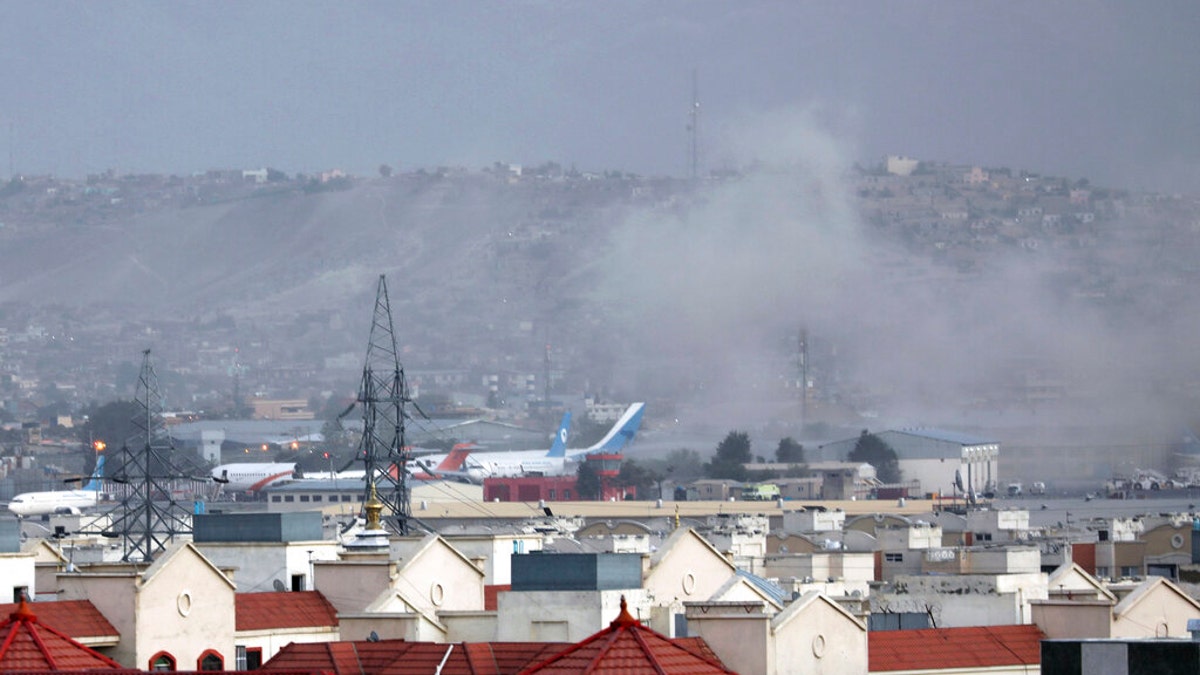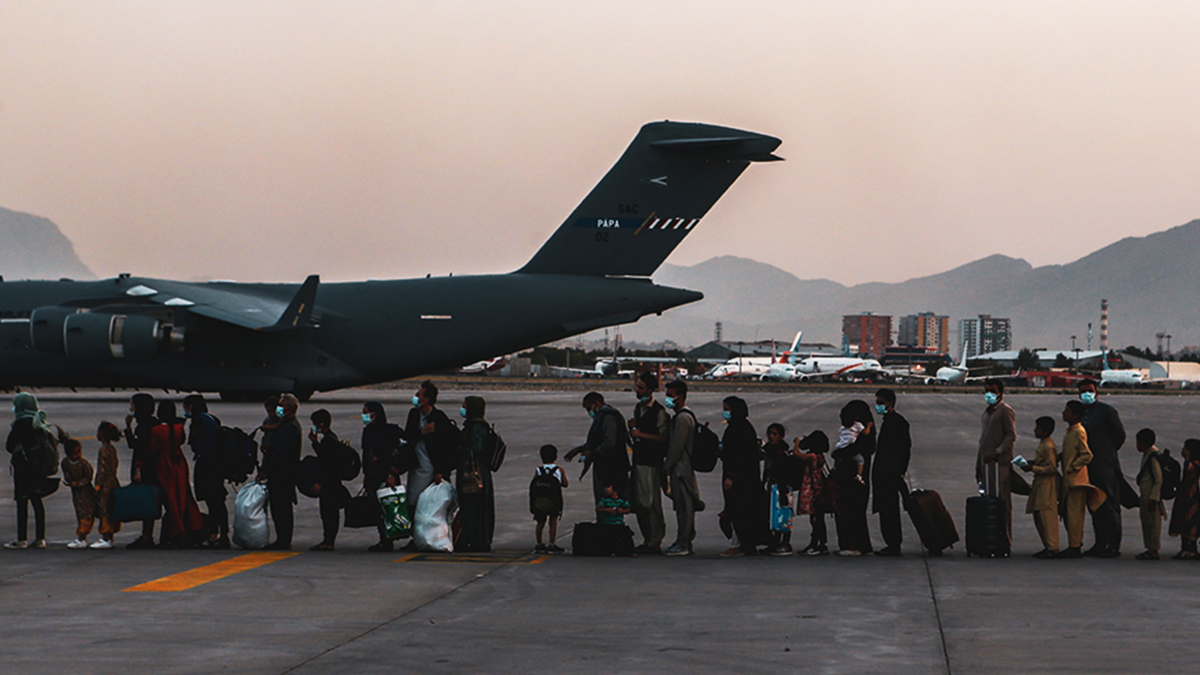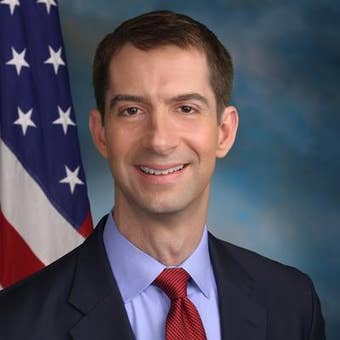Tom Cotton: Biden wants to bury Afghanistan 'debacle' in history
Sen. Tom Cotton, R-Ark., says the Biden administration's botched Afghanistan withdrawal projected weakness to the world.
Adapted from Only the Strong, which will be published November 1, 2022
Earlier this month, the United States announced the killing of Al Qaeda’s terrorist leader, Ayman al- Zawahri. The announcement came as welcome news to all Americans. Finally, one of the last living plotters of 9/11 got the justice he deserved.
But the strike on Zawahri is notable not only for who it killed but where it occurred: Kabul, Afghanistan. Not one year after President Joe Biden’s disastrous retreat from Afghanistan, the country’s capital and largest city is already harboring some of the world’s most notorious terrorists and enemies of America.
TALIBAN 'CAN'T BE MATCHED' WITH EUROPEAN NATIONS ON WOMEN'S RIGHTS ISSUES: SPOKESMAN
To make matters worse, Zawahri reportedly was hiding at a home owned by an aide to Sirajuddin Haqqani, the Taliban leader. This was a direct violation of the Taliban's assurance, as a condition of our withdrawal, that it would not harbor terrorists. Its members might as well be taunting us.

Sen. Tom Cotton's new book "Only The Strong" comes out November 1, 2022.
The Taliban is defying us because it believes we are weak, and it believes we are weak because they saw Biden’s weakness firsthand one year ago. As we mark the one-year anniversary of Biden’s retreat from Afghanistan, it’s worth remembering that catastrophic series of events. The American collapse in Afghanistan explains a lot about the chaos we see around the world today.
Just like many of you, I remember exactly where I was when the crisis in Afghanistan began. I was splashing around a pool with my sons, Gabriel and Daniel. Summer was ending and school was starting soon. They wanted one more Sunday afternoon of swimming, bellyflops, and backflips. It was as far from Afghanistan as you could imagine, but Afghanistan was still very much on my mind.
Since Biden had announced our withdrawal in April 2021, I had observed the Taliban’s momentum with growing concern. When he stated in early July that a Taliban takeover was "highly unlikely," I wasn’t so sure. We had abandoned Bagram Air Base, reduced air support for the Afghan military, and even withdrawn civilian mechanics who kept the Afghan Air Force flying. By early August, I knew from intelligence briefings and my own experiences that the Taliban was seizing territory it hadn’t held for two decades.
On August 6, the Taliban captured its first provincial capital and took more capitals every day after that. Biden insisted, "I do not regret my decision," even as he rushed thousands of troops to Kabul to evacuate our embassy. In private, intelligence officials kept revising downward their predictions of how long Kabul would hold out, but they still overestimated it. On August 15, news broke that Kabul had fallen and Afghan President Ashraf Ghani had fled the country.
As I packed up my boys for the pool that Sunday, I seethed at the president’s mistakes. Like many other veterans of the war in Afghanistan, I was appalled by the president’s mishandling of the crisis. Biden’s incompetent retreat had turned into a rout, humiliating America and squandering the sacrifices of our troops. I pondered the fallout for American power and prestige, but I was about to learn that the book on Afghanistan hadn’t yet closed. The ending would be far worse than I feared.
I stepped out of the pool and checked my phone. I had a voicemail from my dad, who still lived on our family farm in Dardanelle. He asked me to call him because someone needed help in Afghanistan. That’s odd, I thought. Dardanelle is a small community; other than veterans, not many people would’ve ever traveled to Afghanistan, or even met someone who had. I called him back and listened in disbelief. He’d heard that a development worker from down the road was stuck in Kabul, trapped behind Taliban lines.
I was stunned. The State Department has the chief responsibility for the safety of our citizens overseas. Now, State could only tell them to "shelter in place" and fill out a form on its website. I called the operations desk at State for more answers. No one had any.

Hundreds of people, some holding documents, gather near an evacuation control checkpoint on the perimeter of the Hamid Karzai International Airport, in Kabul, Afghanistan, Thursday, Aug. 26, 2021. (AP Photo/Wali Sabawoon)
This was shaping up as a disaster of the first order. If an Arkansan from my neck of the woods was stuck in Taliban-occupied Afghanistan, there was no telling how many thousands of Americans were also trapped. They needed help, fast.
Knowing every second counted, I mobilized my staff for a hasty rescue mission. First things first, I directed them to help the Arkansan get to safety, if possible. Next, I posted on social media a hotline and emergency email account to urge any American trapped in Afghanistan to contact my office. "The situation is dire," I wrote, "but we’ll do everything in our power to help keep you informed and to help get you out." We obviously lacked the resources of the executive branch, but at least we could offer stranded Americans a real person on the other end of the line.

Smoke rises from explosion outside the airport in Kabul, Afghanistan, Thursday, Aug. 26, 2021. (Copyright 2021 The Associated Press. All rights reserved.)
Sure enough, the calls and emails flooded in by the hundreds, then the thousands. It was a race against time. Taliban fighters roamed the streets, beating civilians and searching door to door for Americans and our Afghan friends. Plus, the Biden administration was so clueless and flat-footed that we didn’t know how long we had. A potential hostage crisis — or worse — was materializing before our eyes.
There was one silver lining: Congress was in the middle of its August recess. Without votes in the Senate or committee hearings, I could dedicate my entire staff to the mission. In Arkansas and Washington, our team worked around the clock. Some were veterans of the war, others knew the State Department well, but all threw themselves into the work to save our fellow citizens. As luck would have it, one of my young aides was a mobilized reservist stationed at the Kabul airport. She acted at times as a forward liaison for our efforts.
For two weeks, my team vetted and verified requests for help and supplied information to my aide in Kabul and other military contacts on the ground that they used for rescue missions. We talked Americans through Taliban checkpoints and gave tips about which gates to use and which to avoid.
All told, we helped more than 300 Americans and green-card holders get to safety, along with more than 200 trusted Afghan allies. The first American we got out was the Arkansan. Within 48 hours after the call from my dad, we had verified his identity and location, coordinated a rescue plan with military personnel at Kabul airport, and confirmed his safe arrival at the airport, despite the frantic crowd. He was on one of the first military transports out of Afghanistan.
But for every person rescued, there were many tales of tragedy. America’s final days in Afghanistan were scenes of chaos, confusion, horror, and death. Everyone remembers Afghans mobbing the runways at Kabul airport, clinging to the sides and landing gear of planes, and plummeting to their deaths on the tarmac. Taliban goons whipped and beat our citizens in the streets. Desperate moms and dads passed their babies over barbed wire at the airport gates, knowing they might never see them again. The Taliban targeted dozens of translators and other loyal allies for revenge killings.
CLICK HERE TO GET THE OPINION NEWSLETTER
And on August 26, four days before the last American plane took off from Kabul, the worst blow of all landed. An ISIS terrorist infiltrated the crowd outside the airport’s busiest gate and detonated a suicide vest, killing thirteen of our brave troops and as many as one hundred seventy civilians. It was the deadliest day for American troops in Afghanistan in a decade and a tragic epitaph to our 20-year struggle in that country.

Evacuees wait to board a Boeing C-17 Globemaster III during an evacuation at Hamid Karzai International Airport, Kabul, Afghanistan, Aug. 23. (U.S. Marine Corps photo by Sgt. Isaiah Campbell)
Biden’s Afghanistan fiasco wasn’t just a tragedy for those we lost, their families, and those we left behind. It was strategic disaster of the first order.
CLICK HERE TO GET THE FOX NEWS APP
The Zawahri incident is yet more proof that the world is a more dangerous place thanks to Biden’s weakness. It’s not just in Afghanistan. China is firing artillery into the ocean near Taiwan to intimidate us into abandoning the island to communist subjugation. Russia launched an unprovoked war of aggression against Ukraine and is now threatening to cut off energy to Europe this winter. The fanatical theocrats in Tehran are now closer than ever to acquiring nuclear weapons. Friend and foe alike believe the United States will not protect its allies and does not have the will to defeat its enemies.
A large reason is that Biden’s disgraceful failures in Afghanistan signaled that America was in retreat. It is important to recall those dark days and the lives we lost as a lesson of how not to lead a nation — and a warning that America’s actions have consequences.













































